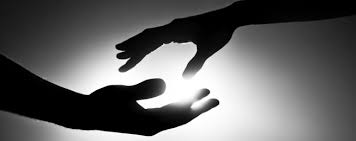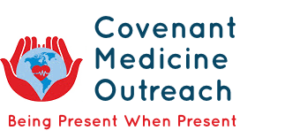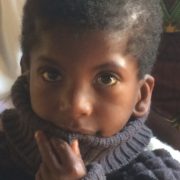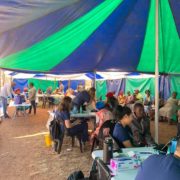The Power of the Human Touch
He was a Masai Warrior
Somewhere in the distance, the sun rose on the barren desert of midland Kenya. He had been walking for some time now, starting early in the hours before dawn, since he wanted to go as far as he could before the heat took charge. Tall, without angles to his legs and arms, he walked taking long strides without hurry, each step directed in front of the other. His face, long and jet black, held eyes that were brown with a gaze of fierce intent, enough so, that anyone who dared look at him, would quickly look away. He was a Masai warrior. He was headed to the medical camp that he had heard was coming to a village that was now only a few miles away since he began his walk. He hurt, the pain in his side had gotten worse. And the pain in his memory as well. He wanted help.
I had started to see patients as did the other medical examiners who had volunteered for this medical a mission trip. Children were our first priority, with adults seen at the end of the day if we had time. We always found the time. I looked out at the registration area and saw hundreds of children with their mothers, waiting their turn, anxiously looking to see if they were going to make it to the medical examiners before the clinic closed. Making the best of a few minutes break as the first station, the nutritional assessment station, was over run with children, I looked out at the waiting area and saw him. He stood, leaning on his long spear, the sharp tip shinning in the sunlight, his left leg bent at the knee and his left foot resting on his right knee. He was alone, no one around him, his face drawn. He stayed like that for hours, until late in the afternoon, after all the children were seen, he was brought to me. I had watched him all day and wondered if I was going to be the one to see him. I wanted to. I wanted to learn what was behind those piercing eyes, that stern face and his heart. Masai warriors are not keen on the simple graces of life like love, caring and hugs. They are nomadic, at times fiercely aggressive and war like. This man seemed no different.
He said nothing
“How may I help you,” I said through my interpreter who was immediately unsure of how to address this man. In fact my interpreter didn’t speak the dialect that this Masai spoke, so I was on my own. I raised both my hands in a questioning gesture. He said nothing but pointed to the right side of his abdomen. I began to lean towards him to touch his side, when he leaned forward as well with a look that shouted “don’t”. I didn’t. I took another road of an examination technique, and pointed to my side, first high up, then low down. He pointed low down on his side. Perfect. We are getting somewhere. I pressed gently on my side, grimaced and looked at him. No reaction. I pressed harder and deeply on my side, grimaced, and he nodded yes. We’ve got this now. And then he pointed to his head. Right in the middle of his forehead. Two things now to figure out. His right side of his abdomen and his head. Great. Now what.
Leaning back in my chair, I pondered this dilemma. How am I going to examine, him, ask the questions, find the answers to the diagnosis and treat him? We sat and looked at each other for a moment that turned into minutes. Our eyes never left each other’s. I began to smile hoping for a response. Nothing. Except for what looked like a tear forming in his left eye. It couldn’t be. Masai warriors don’t cry. I reached out my hand. Looking at it, he slowly reached out and took it. Lightly holding mine at first, then harder and more entwined. I pulled him close gently, and put my arm around him hoping that the spear that he was still holding wouldn’t find its way into my chest. It didn’t. He was hesitant at first, then he relaxed and put his arm around me as well. Staying like that for a few moments, I then took my hand that was around him and moved it down to his right side and examined him. He didn’t move nor flinch. I was happy to discover that. We parted and he sat back. Pointing to his head again, I realized that the pain in his side was a diversion to what he really was feeling. Physically this man was fit, muscular and lean. Emotionally, he was hurting. How did I come to this you say? When we hugged, he smiled, showing his brilliant white teeth, and his eyes sparkled. He showed me himself. A lone warrior, a man who lived day to day, resting his head wherever he was when the night came, was looking for that special human character, that human touch of caring for another.

Moments like these
I prayed openly, my hand in his, knowing that he would not understand the words, but perhaps he understood the intent. When the time came for us to part, he rose and reached out to me for another embrace. I saw all the people who were in the clinic looking at us, whispering and gesturing. A Masai warrior embracing someone. It is moments like these, the coming together of 2 people, one seeking help and the other offering it, that makes the ministry worthwhile. It’s not what we bring, but what we leave behind.
In all things give thanks,
David




